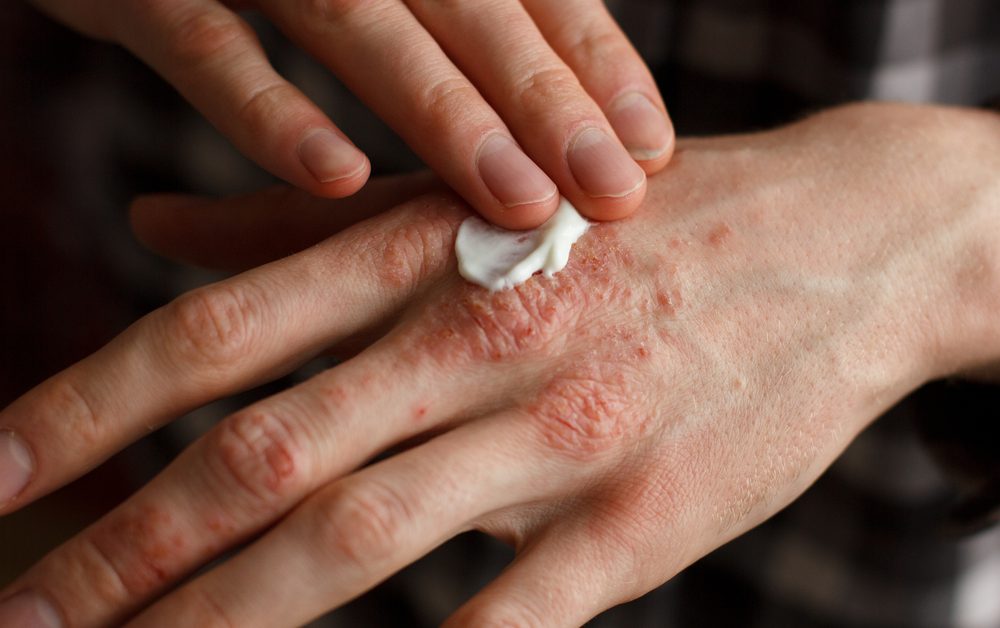Blog
What Are The Most Common Skin Allergies?

Skin allergies are one of the most common types of allergies. If your body encounters an allergen, your immune system will be activated and will generate antibodies to ward off these allergens.
Because of this, some of the most common symptoms of skin allergies such as rashes, inflammations, or irritations will occur. These allergies are all treatable by a qualified dermatologist.
There are many types of skin allergies, and listed below are some of the most common skin allergies.
1). Eczema
Also known as atopic dermatitis, eczema is a chronic allergic condition that has common symptoms of dry, irritated, red, and itchy skin.
If the skin is infected, symptoms can be worse in which the skin has bumps filled with a clear or yellowish liquid.
This condition usually begins in childhood and can be exacerbated by triggers such as cleaning products, dust, and pet dander. Though it is not contagious, people that have this condition usually have a family history with allergies.
The good news is that most children outgrow eczema, but the condition can also span into adulthood. It is important to seek treatments and medications prescribed by your doctor in order to mitigate this skin condition.
2). Hives
Hives, or urticaria, takes form as welts or red bumps across the skin in any part of the body. It will be classified as acute urticaria if it spans less than six weeks or chronic urticaria if it spans more than six weeks. Don’t worry, they’re not life-threatening!
Hives can be triggered by many things such as the following: food (like nuts, peanuts, eggs, and shellfish), latex, medications (such as antibiotics, aspirin, and ibuprofen), insect bites, bacterial infections, latex, viral infections, and more.
They can be managed by avoiding triggers and consulting an allergist who will help identify specific triggers and will recommend both medications and treatments to help your condition.
3). Angioedema
Angioedema often occurs with hives (urticaria) and is recognised as deep swelling in layers of the skin and can be quite painful.
It is often found in soft tissues like the eyelids, mouth, and/or genitals but can also occur in the feet, hands, face, and throat (if it occurs in the throat, it can be life-threatening and requires immediate medical condition).
Angioedema can be acute, lasting minutes to hours, or can be chronic if it lasts over a longer period of time.
It is important to consult with your allergist if you have this condition so that they can determine the proper treatment necessary. This is because different treatments are specific of whether or not angioedema is accompanied by hives.
4). Contact Dermatitis
Contact dermatitis occurs when your skin touches an allergen or irritant. The most common are from chemicals found in skincare products such as lotion, soap, or sunscreen.
Other products that have chemicals such as laundry detergents, shampoos, fabric softeners can also cause reactions, along with adhesives, nail polish, latex gloves, and metals such as nickel which is found in stainless steel for jewellery.
Air particles such as pollen can also trigger dermatitis and is known as airborne contact dermatitis.
Special cases such as “photoallergic contact dermatitis” occur when you have a reaction after you’ve been exposed to the sun. It is exacerbated by chemicals from products like perfumes, shaving lotion, and sunblocks.
Symptoms range from redness, swelling, cracking, bumps, blisters, rashes, scaly patches, and burning.
Reactions may not come right away and symptoms can last 2 to 4 weeks with or without treatment from your allergist, who may recommend creams or oral medication to help relieve your symptoms.
Conclusion
There are various types of skin allergies that each exhibit different symptoms and require different treatments. However, the most important thing to remember is to stay away from offending allergens.
Though most allergies heal on their own if you are able to detect the early signs of skin allergies, consult with your doctor or dermatologist immediately to ensure that your condition does not worsen and develop into a life-threatening allergic reaction.
Moreover, it is crucial that you consult with your dermatologist as they are specially trained to help mitigate your condition and recommend the necessary precautions and solutions depending on the severity of your condition.
Searching for and finding a trustworthy dermatologist in Melbourne isn’t easy. However, if you need to seek advice from a trusted and experienced dermatologist, look no further than Brighton Dermatology.
We are able to deal with a large range of skin diseases and disorders and help you to restore your health and confidence.
Please call us today for a consultation on (03) 9592 7474 or contact us via our website.

